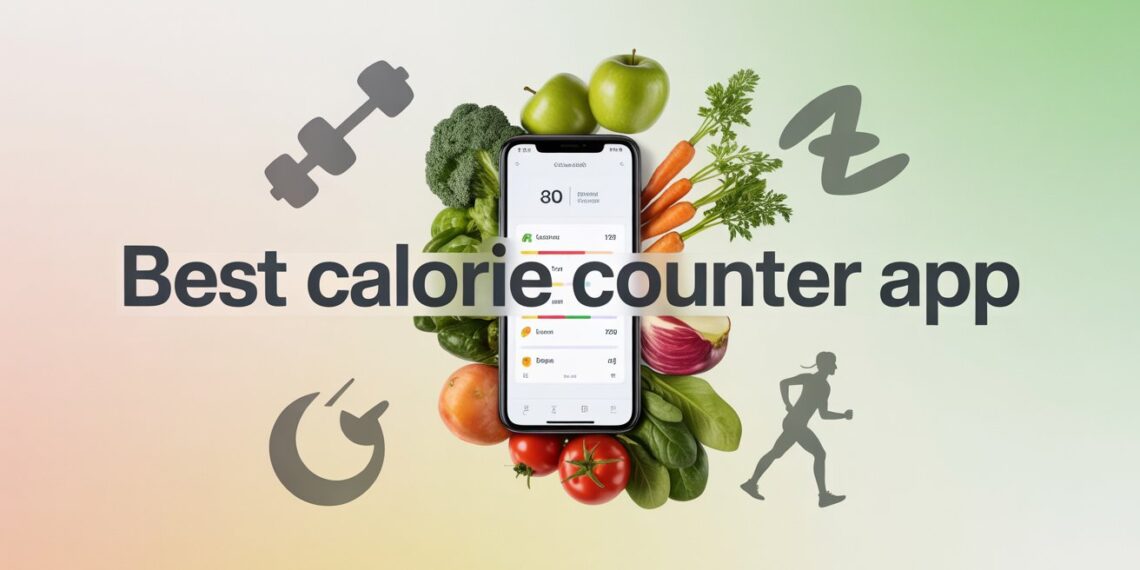Calorie tracking has changed dramatically in the last few years. As of 2025, the best apps no longer function as simple food diaries, they act as intelligent nutrition assistants, integrating AI meal recognition, wearable syncing, habit-building tools, and adaptive calorie targets that adjust based on your real progress.
Before using any app to make major dietary changes, consider talking to a doctor or registered nutrition professional. Apps can help you understand patterns not define your entire relationship with food.
How Calorie Tracking Works Today (and Why It’s Different Than 5 Years Ago)
Modern calorie counter apps improve on old ones by focusing on:
• Nutritional quality, not just calorie quantity
Apps increasingly highlight fiber, protein quality, micronutrients, and food timing all of which matter more for long-term health than raw calorie totals.
• Adaptive calorie targets
Some apps now adjust your daily goals automatically if your weight, energy expenditure, or habits change.
• Fast logging using AI
Photo logging and voice logging are becoming the default, reducing the “logging fatigue” that used to make people quit after a few weeks.
• Behavior-focused coaching
Instead of telling you what you “should” eat, apps now guide your habits, meal environment, hunger cues, and emotional triggers.
The 10 Best Calorie Counter Apps of 2025
Below is an updated list with unique insights, expert commentary, and who each app is best for.
1. Cronometer — Best for Precise Nutrition Tracking
Cronometer remains the most detailed app for people who want more than calories. It goes deep into vitamins, minerals, amino acids, and fiber.
Why it’s great
-
Excellent accuracy for whole-food nutrition
-
Tracks dozens of micronutrients
-
Useful for athletes, biohackers, and people with medical dietary needs
Where it falls short
-
Can be overwhelming for beginners
Best for
People who want scientific-level insight, not just basic calorie counts.
2. Lose It! — Best for Simplicity and Speed
Lose It! focuses on extremely fast logging, lightweight design, and a friendly interface.
Why it’s great
-
Very quick barcode scanning
-
Photo-logging for meal recognition
-
Easy charts that keep beginners motivated
Where it falls short
-
Limited depth for minerals or advanced nutrient tracking
Best for
Beginners who want less thinking, more doing.
3. MyFitnessPal — Best for Database Size & Community
This is the “classic” calorie tracking app, now upgraded with better meal recognition and social features.
Why it’s great
-
Enormous food database
-
Excellent for restaurant meals and global cuisine
-
Features a large community and group motivation
Where it falls short
-
Some food entries can still be inaccurate
-
Best features often require subscription
Best for
People who want variety, community, and flexibility.
4. Noom — Best for Behavior Change, Not Just Counting
Noom blends calorie tracking with psychology and habit formation.
Why it’s great
-
Daily education and habit-coaching
-
Color-coded guidance teaches food quality
-
Helps users understand emotional eating triggers
Where it falls short
-
Not ideal if you want a simple tracker
Best for
People who want to change their mindset, not just track food.
5. FatSecret — Best Free Calorie Tracking App
One of the strongest no-cost options with solid features.
Why it’s great
-
Free version is surprisingly complete
-
Straightforward food diary and activity tracker
-
Good for people who want zero paywalls
Where it falls short
-
Interface feels more “budget” than competitors
Best for
Anyone who wants effective tracking without spending money.
6. Lifesum — Best for Healthy Eating & Aesthetic Design
Lifesum blends calorie tracking with meal planning and beautiful design.
Why it’s great
-
Visually appealing and motivating
-
Meal plans for different diet types
-
Good balance of calories, macros, and food quality
Where it falls short
-
Most meal plans require subscription
Best for
People who want both structure and visual inspiration.
7. Carb Manager — Best for Low-Carb & Keto Users
This app isn’t just for keto diets, it’s for anyone who needs detailed carb tracking.
Why it’s great
-
Tracks net carbs, glycemic load, and macros
-
Offers keto-friendly recipes and shopping lists
Where it falls short
-
Too niche for general calorie counting
Best for
Low-carb, keto, or metabolic-health-focused users.
8. Ate Food Diary — Best for Mindful Eating (Non-Calorie Approach)
A unique, photo-based app that helps you evaluate habits instead of numbers.
Why it’s great
-
Encourages intuitive and mindful eating
-
Tracks hunger, mood, and emotional triggers
Where it falls short
-
No calories or macros
Best for
People improving food habits or emotional eating awareness.
9. MyNetDiary — Best for Custom Diet Types
MyNetDiary lets you choose a “style” low-carb, plant-based, keto, balanced, etc.
Why it’s great
-
Flexible goals for different diets
-
Accurate food database
-
Strong integration with wearables
Where it falls short
-
Some features locked behind premium
Best for
Users with specific dietary lifestyles.
10. MyPlate by Livestrong — Best for Recipe-Guided Weight Loss
Simple and friendly with a large recipe library and beginner-friendly meal plans.
Why it’s great
-
8-week guided meal plan
-
Clear charts and visuals
-
Encouraging community and success stories
Where it falls short
-
Some recipes and advanced data require upgrade
Best for
People who need guided structure, not just tracking.
Which App Is Best for You? (Quick Selector)
Goal |
Best App |
|---|---|
Track every nutrient |
Cronometer |
Lose weight with minimal effort |
Lose It! |
Eat healthier long-term |
Lifesum |
Change habits & mindset |
Noom |
Track carbs or keto |
Carb Manager |
Log meals fast & socially |
MyFitnessPal |
Free, simple tracking |
FatSecret |
Improve habits without counting |
Ate Food Diary |
People Also Ask (2025 Edition)
Is calorie counting still effective in 2025?
Yes but only when paired with understanding food quality, not just hitting a number. Protein, fiber, sleep, stress, and exercise often play a bigger role in long-term progress than precise calorie counts.
Which apps are most accurate?
Apps with curated databases (like Cronometer or MyNetDiary) tend to be more accurate than crowd-sourced ones. AI photo logging also reduces human error.
Do calorie counter apps help you lose weight?
They help by increasing awareness of portion sizes and habits. Most people eat more mindlessly than they realize. The act of logging even imperfectly improves choices.
Should everyone count calories?
No. Some people thrive on structure; others find it stressful. Mindful eating or simplified tracking (like photo logs) can be equally effective for many.
Final Thoughts
The best calorie counter app in 2025 is the one that fits your lifestyle. Some people want detailed nutrient data, others want fast logging, and some want mindset coaching rather than calorie counting. The key is choosing the tool that reduces friction, improves awareness, and helps you build habits you can maintain for years not just weeks.









